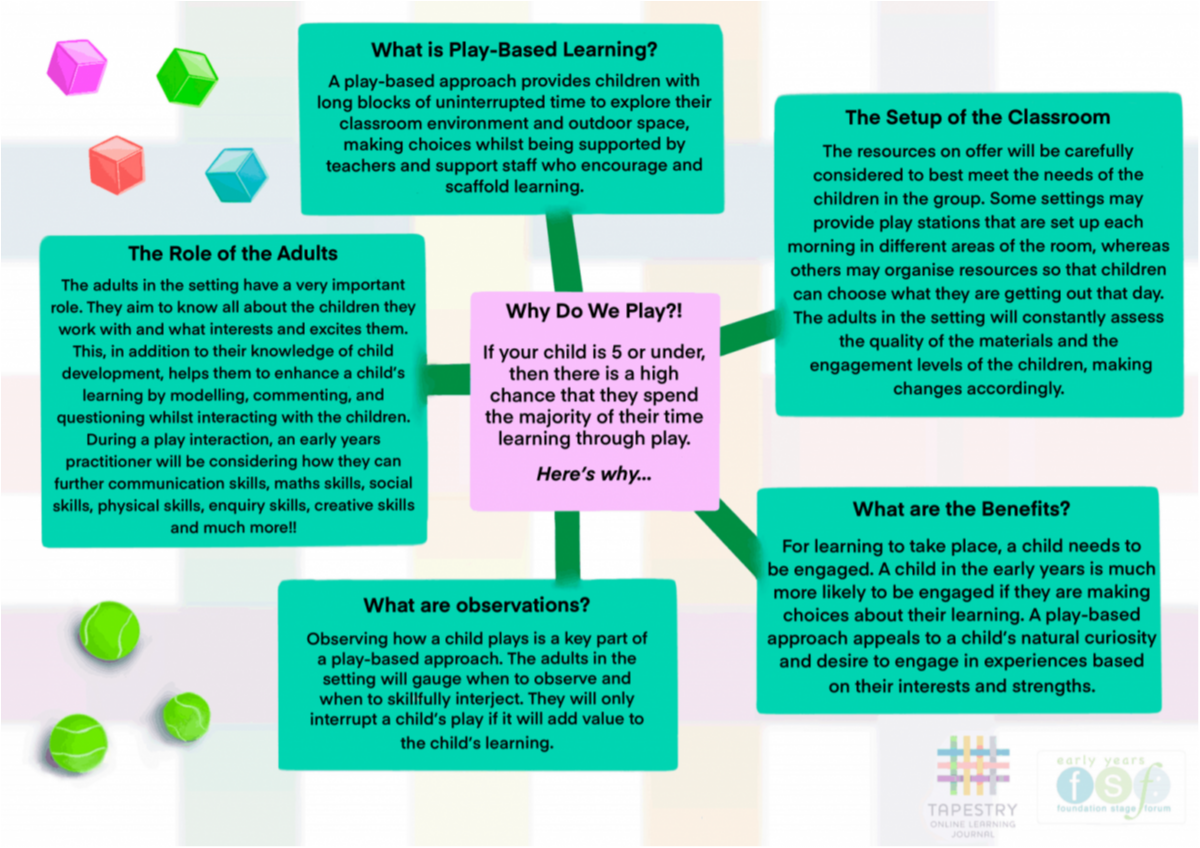The Early Years Foundation Stage sets the standards that we must meet to ensure that children learn and develop well and are kept healthy and safe. It promotes teaching and learning to ensure children’s ‘school readiness’ and gives children the broad range of knowledge and skills that provide the right foundation for good future progress through school and life.
The EYFS seeks to provide:
- quality and consistency
- a secure foundation through learning and development opportunities which are planned around the needs and interests of each individual child and are assessed and reviewed regularly
- partnership working between nursery staff and parents and/or carers
- equality of opportunity and anti-discriminatory practice, ensuring that every child is included and supported
EYFS principles
Four guiding principles shape practice in our early years setting.
These are:
- every child is a unique child, who is constantly learning and can be resilient, capable, confident and self-assured
- children learn to be strong and independent through positive relationships
- children learn and develop well in enabling environments, in which their experiences respond to their individual needs and there is a strong partnership between staff and parents and/or carers
- children develop and learn in different ways (see ‘the characteristics of effective learning’) and at different rates
Characteristics of Effective Learning
The characteristics describe how a child learns
Playing and exploring
- Finding out and exploring
- Playing with what they know
- Being willing to have a go
Active Learning
- Being involved and concentrating
- Keeping trying
- Enjoying achieving what they set out to do
Creating and thinking critically
- Having their own ideas
- Making links
- Choosing ways to do things
The Areas of Learning and Development
There are seven areas of learning that shape what we do in nursery, known as the Prime areas and the Specific areas. All areas are important and inter-connected.
The Prime areas are:
- Communication and Language
- Physical Development
- Personal, Social and Emotional Development
The specific areas are:
- Literacy
- Mathematics
- Understanding the World
- Expressive Arts and Design
Communication and Language Development involves giving children opportunities to experience a rich language environment; to develop their confidence and skills in expressing themselves; and to speak and listen in a range of situations.
Physical Development involves providing opportunities to be active and interactive; and to develop their coordination, control, and movement. Children are helped to understand the importance of physical activity, and to make healthy choices in relation to food.
Personal, Social and Emotional Development involves helping children to develop a positive sense of themselves, and others; to form positive relationships and develop respect for others; to develop social skills and learn how to manage feelings; to understand appropriate behaviour in groups; and to have confidence in their own abilities.
Literacy Development involves encouraging children to link sounds and letters and to begin to read and write. Children are given access to a wide range of reading materials to ignite their interest.
Mathematics involves providing children with opportunities to develop and improve their skills in counting, understanding and using numbers, calculating simple addition and subtraction problems; and to describe shapes, spaces, and measure.
Understanding the World involves guiding children to make sense of their physical world and their community through opportunities to explore, observe and find out about people, places, technology and the environment.
Expressive Arts and Design involves enabling children to explore and play with a wide range of media and materials, as well as providing opportunities and encouragement for sharing their thoughts, ideas and feelings through a variety of activities in art, music, movement, dance, role-play, and design and technology.

